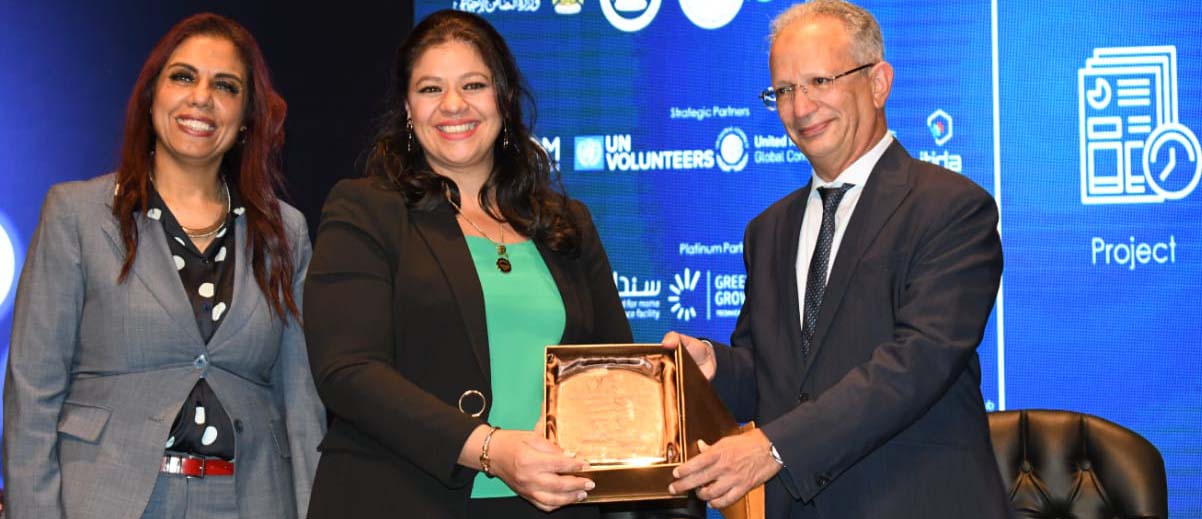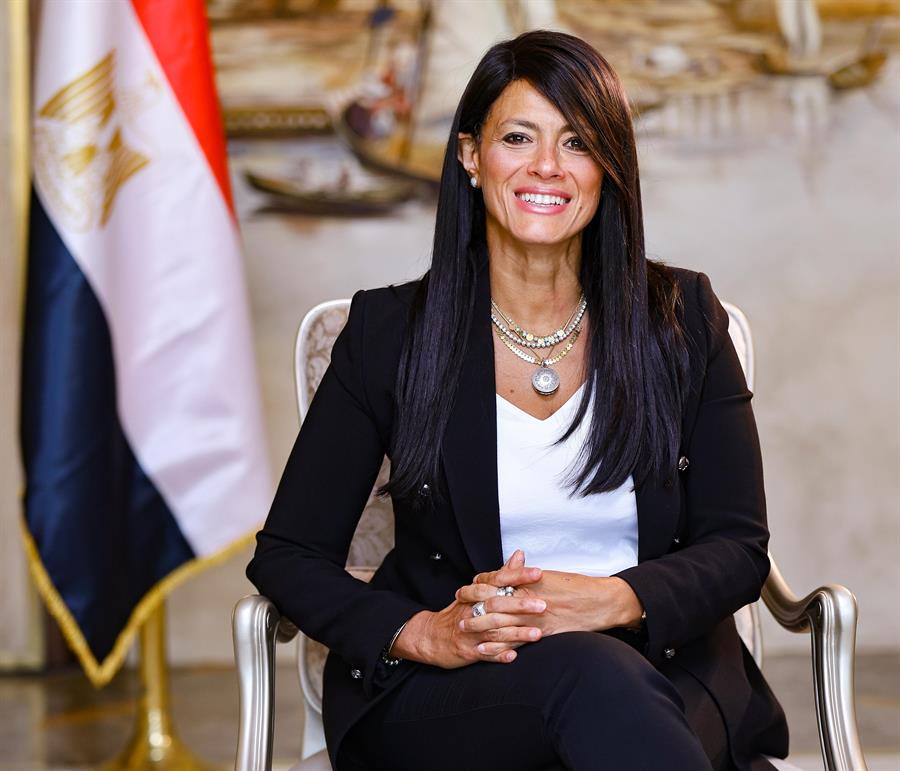Rowad 2030 Project wins the “Best Project” award at a Community - Tech forum

07 September 2021
The Rowad 2030 "Pioneers 2030" project of the Ministry of Planning and Economic Development won the Arab Technology Award for Community Service as "Best Project” during the activities of the first session of the Community-Tech Forum, which was launched on Monday at the Egyptian Opera House, under the auspices of the Ministries of Communications, Finance, Culture, Environment, and Solidarity.
The event witnessed a strategic partnership with the United Nations Migration Organizations, the United Nations Volunteering, and the United Nations Development Program, as well as the General Authority for Universal Health Insurance and the Information Technology Industry Development Agency (ITIDA).
Commenting on the "Rowad 2030" project winning the "Best Project" award, Minister of Planning and Economic Development Dr. Hala El-Said said that the ministry's launch of the "Rowad 2030" project comes as an affirmation of the importance of spreading the culture of entrepreneurship and the idea of self-employment among young people, who represent the largest segment of society.
El-Said referred to the signing of cooperation protocols with the universities of Cambridge, Cairo, the American University in Cairo (AUC), the German University in Cairo (GUC), and the Center for Leadership Development, from which many young people benefited by studying masters and various scholarships in entrepreneurship.
El-Said explained that this came with the aim of building and developing their capabilities and skills to enable them to transform their ideas into projects.
During her speech at the Community-Tech forum, Dr. Ghada Khalil, director of the Rowad 2030 project, said that the goal of the project is to spread the idea of entrepreneurship and the culture of self-employment among young people, as well as the advancement of young talents to achieve comprehensive and sustainable economic and social development.
Regarding the pillars of the Rowad 2030 project, Khalil explained that the project, since its launch, has been based on the implementation of three axes, the first and most important of which is the educational pillar. Therefore, a professional master’s degree in entrepreneurship and innovation management was launched in cooperation with Cambridge University and the Faculty of Economics and Political Science, Cairo University, and in light of the increasing demand from young people to enroll in this master's.
The project contacted AUC to cooperate in granting a diploma in entrepreneurship, and another diploma with the German University, stressing that the project works to support young people to start transforming their ideas into real projects in a thoughtful academic manner.
Khalil added that the second pillar of the work of the Rowad 2030 project, which is the awareness axis, was launched through the "Start Your Future" campaign and started from the preparatory government schools, by holding training courses for these young people, to introduce them to the entrepreneurship system,
The campaign was not limited to schools, but reached the level of universities, as it was implemented in more than 20 universities across Egypt.
Khalil explained that the third pillar of the project is concerned with business incubators, as the project has implemented 9 business incubators so far, including two in artificial intelligence in addition to an incubator in the field of tourism.
El-Said referred to the inclusion of the Rowad 2030 project in the "Best Practices" that achieve the UN goals for sustainable development of the United Nations Department of Economic and Social Affairs.









